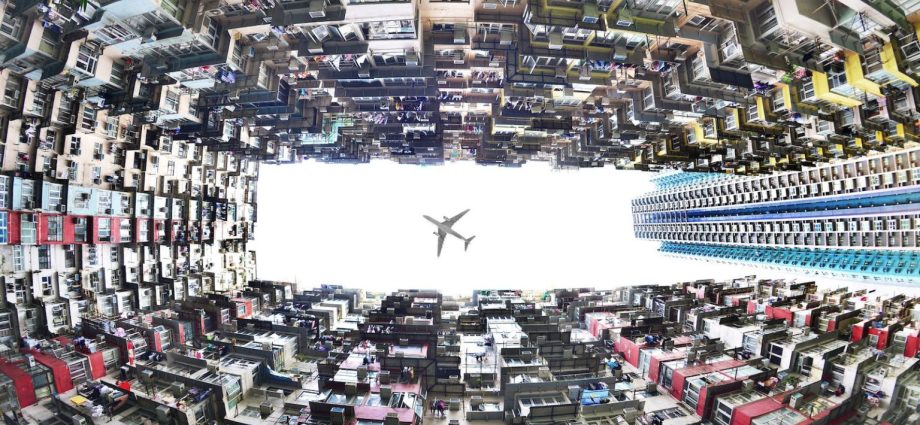The European Union will ask its members to screen foreign direct investment (FDIs) and potentially block countries such as China and Russia from getting access to their sensitive technologies in the chip, artificial intelligence (AI) and quantum computing sectors.
The EU will announce its European Economic Security Package (EESP) on Wednesday to ask all EU member states to set up screening mechanisms and widen the scope of existing rules to include investments made by companies that are either directly or indirectly controlled by foreign entities, according to a draft of the plan seen by Bloomberg.
The proposal will also suggest the creation of a fund to increase the development of technologies that can serve both military and civil purposes.
The EU has spent more than half-a-year preparing for this proposal. It comes after Chinese Premier Li Qiang met with President of the European Commission on the sidelines of the World Economic Forum Annual Meeting 2024 in Davos on January 16.
During the meeting, EC chief Ursula von der Leyen said the EU does not intend to decouple from China. Li said China is ready to import more products from the EU that align with market demand, and hopes the EU will relax export restrictions on high-technology products to China.
China’s state media said the new proposal of the EU will hit Chinese firms that are interested in acquiring Europe’s high-technology companies.
Some Chinese commentators said Beijing will open and maintain dialogue with each of the EU member states individually and persuade them to ease their investment rules. They said that, in return, China will import more goods from them.
“After Ursula von der Leyen suggested early last year that the EU de-risk from China, the EU said last June that it would launch the European Economic Security Strategy. Now it is going to announce the EESP. All these three steps were well planned,” Zhao Yongsheng, a professor at the Institute of Regional and International Studies at the University of International Business and Economics in Beijing, told the Global Times in an interview.
”The European Economic Security Strategy unveiled last June was obviously targeting China,” he said. “If the coming EESP is implemented, it will create a negative impact on different areas, including trade, investment and technology exchange areas, between China and the EU.”
He said China should consider increasing its investment in Europe or cooperating with European firms across different sectors, including industrial equipment, spacecraft and launching devices. He said China should also try to expand its solar panel factories from eastern and central Europe to the rest of the region.
”With 27 member states, the EU is an organization that cannot reach consensus on most issues,” said Julian Kuo, a Taiwanese political scientist and former legislator.
Kuo said this is why China had invited leaders of Germany, France, the Netherlands and Spain to visit Beijing while Premier Li Qiang visited Ireland and Switzerland earlier this month. He said China will maintain dialogue with European countries individually and form a bilateral relationship with each of them.
“China clearly understands that it’s a waste of time to deal with the EU. In many cases, what von der Leyen said won’t be realized. Even France and Germany are having different views,” he said.
He said last September the EU started a 13-month investigation into whether government subsidies have helped Chinese electric-vehicle makers win market share in Europe in recent years. He said it’s likely that the EU will do nothing after the anti-subsidy probes.
In fact, while the French government is supportive of the investigation, some German car makers said they are worried that a race for punitive tariffs and trade barriers between China and the EU will hurt their Chinese business.
Volker Treier, head of trade at the German Chamber of Commerce and Industry (DIHK), said last September that Chinese distortions of competition are a particular problem that Europe should tackle. But he added that he hopes there won’t be any excessive subsidies or new punitive tariffs at the end of the 13-month investigation.
Sensitive sectors
Last June, the European Commission and the EU High Representative or Foreign Affairs published a Joint Communication on a European Economic Security Strategy, which proposed to carry out a thorough assessment of risks to economic security in four areas:
- risks to the resilience of supply chains, including energy security;
- risks to physical and cyber security of critical infrastructure;
- risks related to technology security and technology leakage;
- risks of weaponization of economic dependencies or economic coercion.
“The proposal sets-out our plan to de-risk – rather than decouple – our economic interdependencies on technologies we need the most,” Margrethe Vestager, executive vice-president of the European Commission in charge of bringing about “A Europe Fit for the Digital Age,” said in June 2023. “When we don’t act together, we are a playground. When we act together, we are a player.”
Valdis Dombrovskis, European Commissioner for Trade, told the Financial Times in an interview on January 20 that the EU must find ways of preventing its most sensitive technologies, companies and assets “ending up in the wrong hands.”
He stressed that the coming ESSP will be targeted and proportionate and not become a pretext for protectionism.
Some commentators said EU member nations have had more common views in their China policies since the Covid-19 pandemic and Russian-Ukrainian war, but it remains unclear whether they can work together to shield their high technologies.
They said the EU Commission can only recommend procedures on foreign investment, but whether to accept these recommendations or not is entirely at the discretion of member states.
Currently, EU member states have their own FDI screening mechanisms. For example, Germany blocked the sale of a chip factory to China over security concerns in November 2022.
Read: Trade war, tech war, chip war…EV war?
Follow Jeff Pao on Twitter at @jeffpao3

